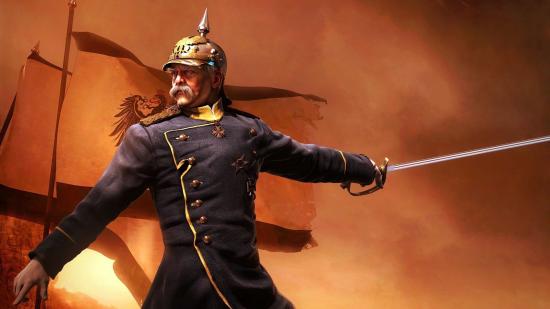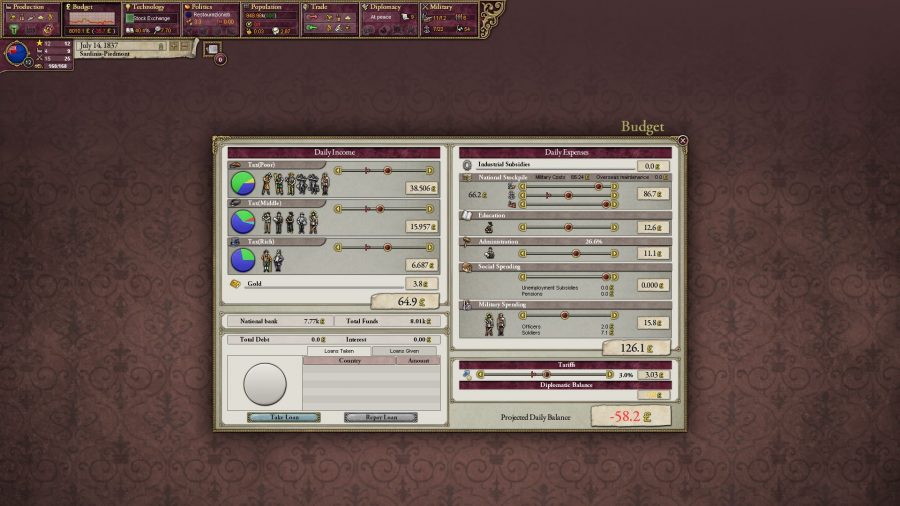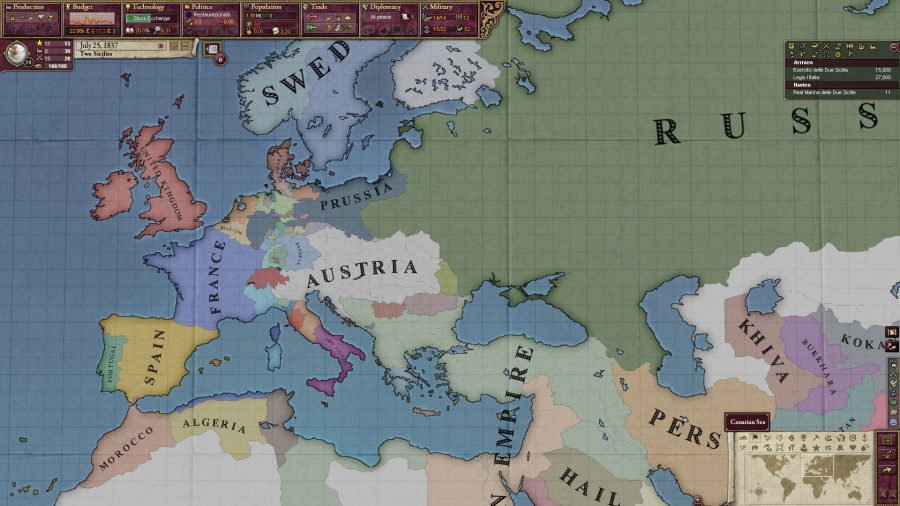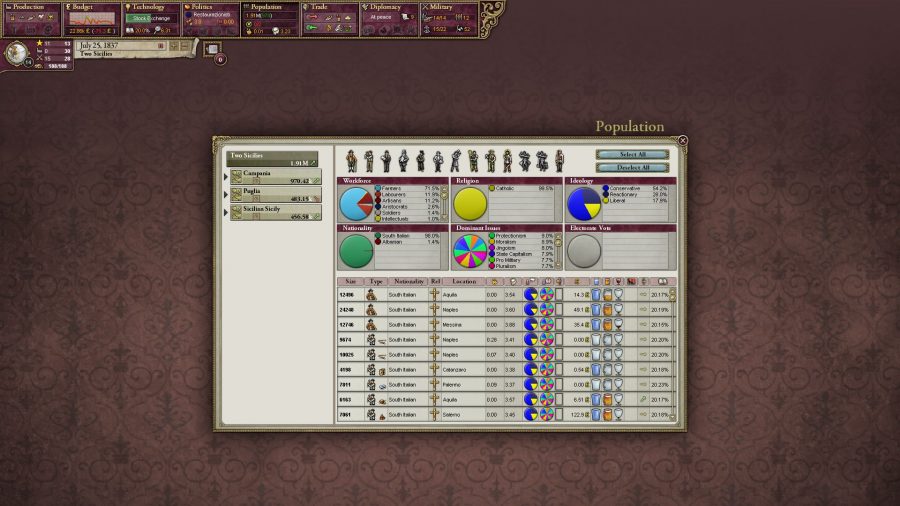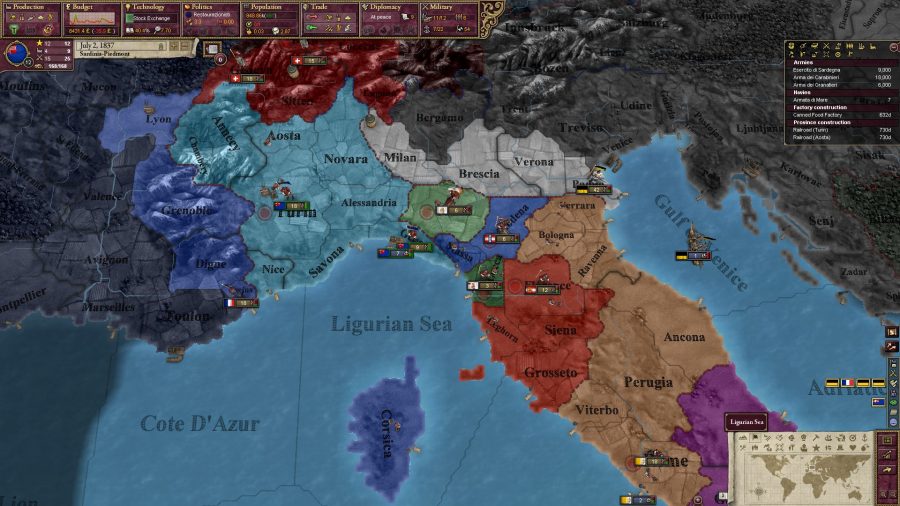While it’s all rather exciting that Crusader Kings 3 is happening – and that a bunch of us got to play it recently – do you know what I’ve been playing? Victoria 2. No, I don’t understand it either, but as of writing it stands as the last bastion of unrevisited old-school Paradox series, surrounded by more modern siblings with fans clamouring at the gates for a third game.
Ever since Paradox actually went and made Imperator: Rome last year (which is the EU:Rome successor everyone wanted), Victoria III stands as the most requested game among traditional grand strategy fans. Much like ancient Rome, there is still a streak of romanticism associated with the mid-late 19th Century, and there aren’t many games that cover the period to the same scale.
Victoria II and Crusader Kings III are worlds apart, but there’s a lot about the nature of Victoria II that informs how one should approach Crusader Kings, and in turn a third Victoria game could benefit greatly from the developments that have gone into CK3.
If you’ve never played Victoria II, I’m not sure I can actually recommend you try it – especially if you’ve only come to Paradox post-CK2. It’s interesting enough, though, that many long-time fans want to see it modernised. Consider this meme from the official Paradox twitter account, which sums up the situation nicely:
— Paradox Interactive (@PdxInteractive) April 28, 2020
It’s the Economy, Stupid
Victoria II’s economy system is a weird beast; so much so that I’m not sure anyone at Paradox really knows how it works any more. It involves nations needing to industrialise over the course of the game, but without the right techs in place factories will actually get out-performed by pre-industrial economic setups. There’s also global trade to take into consideration, including factoring in how much everyone else is making, and of which goods.
What Victoria II fails to teach you, then, is that industrialising early isn’t actually advised. You instead have to balance your tax and spending sliders to stabilise your income while you work on ‘teching up’ your non-existent factories so they don’t immediately fold upon completion. Ideally, you’ll encourage Capitalist citizens (or ‘pops’) to just build them for you, saving the state some money. How you manage these various budget sliders though is not at all intuitive; I saw one video recommending that you whack tariffs and all taxes up to 100%, which seemed bonkers and not very thematic.
This reminds me of Crusader Kings III’s struggle to teach the player not to worry if nothing much is happening. As a game about the Medieval world, you’re not really meant to make huge technological leaps or expand your domain across half the map. If all that happens is that your character lives a fun and interesting life, then you’ll have succeeded – and it’s this last point where the real make-or-break moment in CK3’s design will lie. In a similar vein: if all you do in Victoria II is avoid going bankrupt, then you’re a winner.
Any attempt at making Victoria III would need to completely overhaul the economy and industrialisation process, as well as make everything more intuitive. Given the improvements that have gone into Paradox games since Victoria II’s release (and we’re talking about every game released since Crusader Kings II, here), I don’t have any major concerns on that score.
A Matter of Timing
Interestingly, Victoria II stands as the ‘shortest’ of all Paradox games – I think – in terms of the amount of playable time in the game. Imperator: Rome, EU4, and CK3 all cover some 400 years of history at their maximum. Hearts of Iron IV technically only covers a period of about twenty years or so, but it counts the days by the hour, so the amount of play-time one spends in an average game is about the same as the others.
Victoria II counts time in days and lasts from 1836 to the 1930s – a period of just 100 years where the face of Europe and the world changed beyond recognition. You can see this happen with Victoria II’s formable nation tags, one of the things I love most about it – while Europa Universalis IV also has a lot of variety in the nations you can form now, the difference is that Victoria II extends to the birth of the Modern world. This enables such challenging goals such as unifying Germany or Italy, the rise of nations across the Americas, Africa, and the far east… you could even have a free Welsh state, if you wanted.
More like this: Check out the best 4X games on PC
My feeling is the developers will need to compensate for this shorter period of time in Victoria III, as all of the above creates a sense of urgency that doesn’t help the feeling you have in the back of your head that you don’t have much time to accomplish anything.
Riding the Tides of Change
Victoria II tried to emulate the same ‘internal’ narratives as Crusader Kings II in modelling the vast changes that happened in Europe and overseas – not just the obvious industrial and technological ones, but social developments like basic welfare policies, and political ones like wider enfranchisement. Absolute monarchical rule eroded considerably during this time, and the voice of the people was heard.
In Victoria II this is mainly represented via events – hence the game’s infamy for its never-ending waves of pop-ups – but as time goes on your populations also become steadily more Liberal. While there are ways to manage this, they’re quite tricky – and the longer you resist, the more likely it is that rebellions will break out. As the opinion of your ‘upper house’ changes, you can then enact reforms to meet the needs of the people. When you look at things like voting, the entire make-up of your nation changes, and you no longer have absolute control over your country.
This mainly made itself felt in the economic arena. Different political ideologies have different positions on how much control you should have over your economy. A true ‘RP’ play would be to just go with it and let the game happen around you, but the volatile nature of Victoria II’s economy means that, actually, you need to take a firmer hand in steering political views towards what you want. Which is ‘Planned Economy’, by the way. That’s what you want. Forever.
This is not the Paradox of Victoria II
My confidence that there will actually be a Victoria III one day is not what it once was. I heard a rumour a few years ago that Chris King, the designer of Victoria II’s economy, was back at Paradox (he’d left to go do his own thing) working on Vicky III prototypes. Clearly nothing’s come of that and I’m not sure if he’s still there. The fact that Paradox took a punt on Imperator (and that it did well) is encouraging, but again reports suggest that this was a passion project driven almost single-handedly by Johan with few resources. It was only given the manpower and dedication it needed after it sold well, despite the fan backlash.
If Paradox isn’t willing to actually commit to something as ‘mainstream’ (relatively speaking, as far as historical periods go) as ancient Rome, what are its thoughts towards the even more niche 19th century? This is a time period full of complicated issues such as social reforms, the abolition of slavery vs the scramble for Africa, industrial revolution, and the Great War. These are not trivial issues. The Paradox that made Victoria II (or even Crusader Kings II) is not the Paradox that’s now contemplating whether or not to make Victoria III.
For more cunning plans: See the best strategy games on PC
But one thing’s for certain: there’ll never be a better time to give this game a chance, and I for one hope it gets it.
